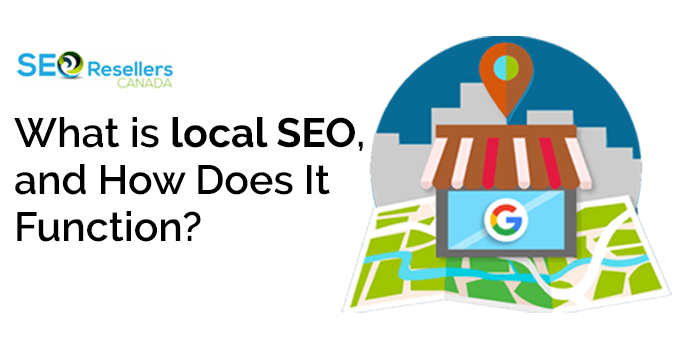SEO has always been a reliable method to boost brands’ visibility and open new inbound marketing avenues for online success. Appreciate that your competitors are online, and there is fierce competition to get into the top 10 of SERP for relevant search queries.
But with SEO and strategically developed content, the matter becomes easier to accomplish.
“Authority” is a buzzword in SEO and content marketing. Everybody wants it, but not everyone knows how to get it and keep it. In particular, Google prizes authority and is more likely to rank content that oozes with it.
Brand authority is that holy grail you achieve after months of hard work and consistency in building your online reputation.
There is no overnight “nobody to authority” story. Instead, you need to have patience and keep up a well-formed strategy to earn your title as a cemented expert in your industry. Interested to know what brand authority is and how SEO can influence brand authority for favorable outcomes? Then read on.
1- Brand Authority – The Basics

Brand authority is nothing but the degree of trust a brand earns among its target audience. The extent to which your intended market views you as a subject matter expert influences your position as a brand authority.
The right brand authority can elevate trust and propel the user base as people tend to deal with businesses they can rely on and believe in.
Many factors, like an active online presence and social media brand reputation, drive brand authority. But the key drivers to accelerate the building of brand authority among the target audience will be compelling content and targeted SEO campaigns.
1.1- The Massive Outreach of On-Site Content

Transform your website into a go-to authority website by posting blogs on relevant topics and informational articles that seek to resolve customer problems. If you continually publish posts that fulfill this condition, audiences will consider your website as an authority in your industry vertical.
This boost in reputation can have far-reaching effects among your target audience.
Ensure that every piece of content aims to address an audience rather than meet Google algorithm norms. When potential buyers see your website as authoritative, their information search will not start from google but your own website.
This way, you effectively eliminate the competition. When you periodically deploy fresh and informative content, you get to keep your readers active and delighted, thus eliminating any chances of attrition.
1.2- Create a Content Strategy
Content marketing is a solid way to build your online authority, but only if you have a plan under your belt at the outset.
If you go about content willy-nilly, expect willy-nilly, inconsistent results. Meanwhile, a strategy does a few things to keep that from happening:
- It keeps you accountable and consistent.
- It lays out what you need to create the best, most authority-building content possible (including helping hands, tools, keywords, topics, and budget).
- It looks ahead to your content future, helping you schedule posts and promote content around strategic dates, seasons, and events.
- It helps you create content that appeals to your audience and ensures you promote it where that audience sees it.
See how much a strategy matters?
You’ll be lost without a plan for building your authority. Before you decide to lean on content marketing to make a name for yourself, spend some time and effort on strategizing. Map out your road to authority, and follow it intently.
1.3- Use of Right Keywords

How do you know what your target audience puts in search queries to discover businesses like yours? Keyword research comes into the picture at this stage. Your prospect’s search queries become your target keyword. When they match, Google lists your site on top of the research results.
This will significantly bolster your chances of receiving quality site traffic and better engagement from prospects who will eventually turn to loyal brand advocates.
You can place your focus on long-tail keywords. These keywords show the intent of the customer to buy rather than look for information. So, if you rank well on these keywords, the likelihood of conversion shoots up.
Quality content peppered with long-tail keywords will give readers insight and will occupy the top spot in SERP. Such content immediately strengthens your industry authority position among searchers.
1.4- Share What You Know
Sharing your expert knowledge is essential to building an authoritative reputation. However, the way you share your expertise makes all the difference. Specifically, aim to share what you know without an agenda or ulterior motive.
(Yes, the overarching goal is to build brand authority, but your immediate intent should be to help people!)
How do you do that? Give your readers value. Offer information that will improve their lives in some fashion. Help them solve the problems they face.
1.5- Focus on a Few Precise Topics
“Jack of all trades, and master of none.” This adage doesn’t hold for building brand authority. Instead of showing that you know everything, you need a different approach.
You need to know that you know one thing and can do that one thing better than others.
Ranking for a specific topic is much easier than showcasing you know about a broad array of industry topics. For this, you need to first assess what your key topic is going to be.
Your cornerstone content will be based on this topic. If you rank well for such pillar content, then you can expect long term gains in the process.
You will need to link content related to your main content and then distribute the blog post on multiple topics spanning single page traits. Doing this provides two key benefits.
Not only does your Google ranking improve, but your brand authority effort too gets a boost.
1.6- Focus on Sharing What You Know
Sharing your market-leading knowledge is key to building brand authority. But there is one caveat – there should not be any hidden agenda when you share the knowledge.
This way, you focus on sharing the content and convey the actual knowledge with well-written content.
So, focusing on helping people will help build your brand authority over time. You can do this by preparing strategic content that focuses on helping the readers with knowledgeable content, i.e., by publishing content that improves the lives of the target customers in some way.
1.7- Participate in Your Industry Community
This tip is straightforward: Find and follow your industry peers. Post regularly on social networks where your audience lives, and make a point to interact and connect with others.
By participating in the community surrounding your industry, you get your name associated with a friendly presence and help others stay abreast of your latest content pieces overflowing with helpful (read: authority-building) advice and knowledge.
Sharing your content, engaging in discussions, and actively participating in your online community are key parts of your overall content strategy. You can’t build online authority without them.
1.8- Set up Links That Radiate Trust

When you focus on using links to boost your content, you need to make sure that you don’t run afoul of Google’s SEO guidelines. When you set up trustworthy links, you come closer to building a long-term brand authority positioning. By indulging in activities like staying active in social media or leaving testimonies, you will be sure to take the right steps towards crafting brand authority that matters to your customers.
Another way is to write guest posts on influential sites relevant to your industry or business offering. The more and more you become visible on Google results for your target audience, the more affinity your brand will have. Since people trust Google, it will mean that they will trust your brand, too, over time.
1.9- Target Informational Keywords in Long-form Content

Long-form, in-depth content gives you a greater opportunity to display your expertise than a short, pithy blog post or a Twitter update.
Long-form content is where your authority can spread its wings and show the world what it can do.
While you’re at it, target informational, long-tail keywords in your longer content pieces. Take care to make that content as great as humanly possible.
Your knowledge and hard work will more than likely earn a top spot in Google rankings, which is an immediate signifier of authority to searchers.
1.10- Showcase Your Expertise
A good way to build brand authority that doesn’t dilute with time is to showcase your expertise as widely as possible. When you host an industry event, when you win an industry award, when you get a new certification (e.g., being ISO certified), you are sure that your brand authority enhances with such a display of expertise.
People’s trust in your offering will rise when your brand’s presence in such an eminent crowd increases.
When you show confidence in your brand, it will reflect on your customers and, ultimately, help in building strong brand authority.
2- To Sign Off
Nobody builds a great reputation overnight. Instead, your consistent actions – what you do and say – proves to people you’re an authority over time. Online, that means:
- Building your brand through consistent, strategic content and SEO.
- Maintaining a social presence.
- Being friendly, open, and making genuine connections with your peers and audience.
- Working hard to prove your knowledge and provide value to your audience everywhere.
When you’re ready to show up consistently, you’re ready to start building authority. Building brand authority is a long-term process. But the rewards more than outweigh the cost of efforts and time took.
So, get going with this right away and focus on strategic content and SEO to do the work for you.
Editor’s Note: This post was originally published on October 16, 2019, and has been completely revamped and updated for accuracy and comprehensiveness.













